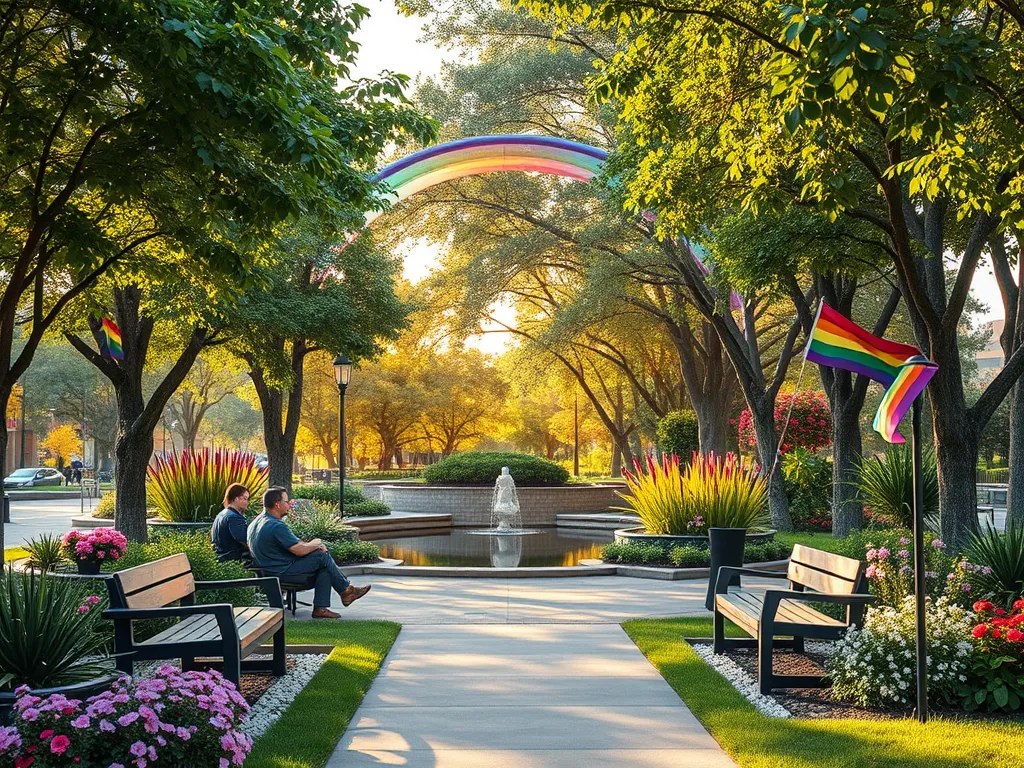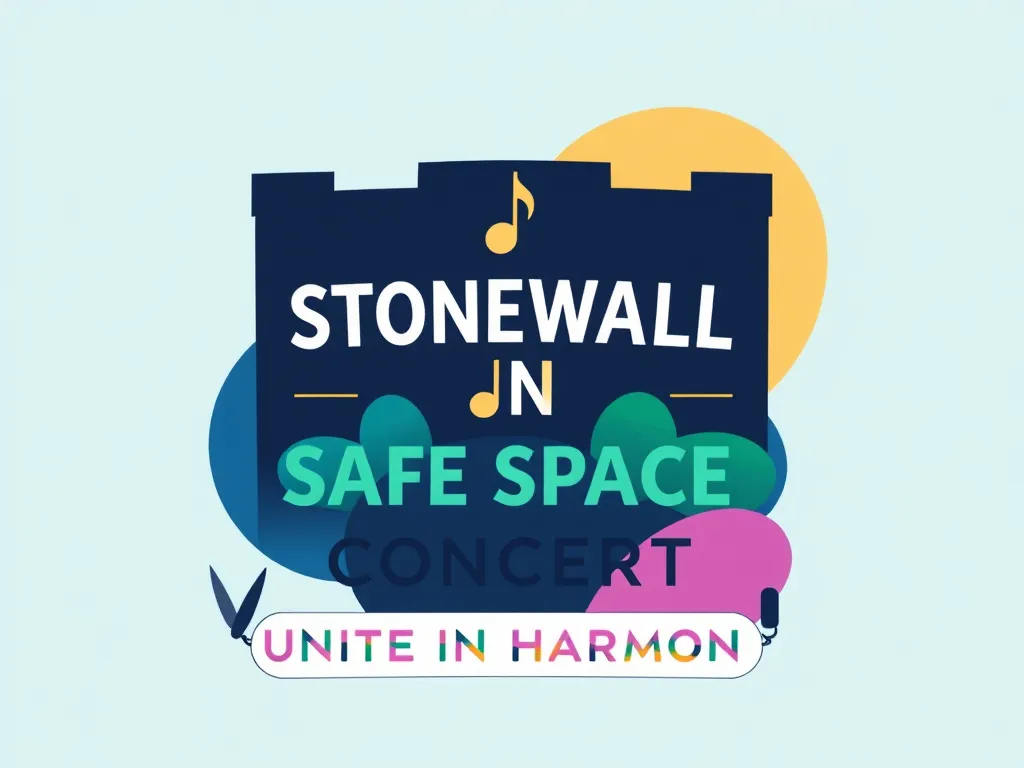Creating Safe Spaces Initiatives for LGBTQ+ Communities

Safe Spaces Initiatives for LGBTQ+ Community
Safe Spaces Initiatives for LGBTQ+ Community are essential in creating environments where individuals identifying as LGBTQ+ can feel secure, accepted, and valued. These initiatives aim to foster inclusive settings within various places such as schools, workplaces, and public spaces, ultimately reducing discrimination and promoting a sense of belonging. By focusing on education, awareness, and the implementation of supportive policies, Safe Spaces Initiatives play a crucial role in uplifting the LGBTQ+ community.
The term 'safe space' encompasses more than just the absence of hostility; it signifies a supportive atmosphere that actively recognizes and respects the identities and experiences of LGBTQ+ individuals. Through Safe Spaces Initiatives for LGBTQ+ Community, organizations aim to develop programs that enhance understanding, increase awareness of LGBTQ+ issues, and dismantle the prejudices that often manifest in society. These initiatives also encourage dialogues and discussions that focus on mutual respect and inclusivity.
In recent years, many advocacy groups and organizations have launched Safe Spaces Initiatives for LGBTQ+ Community, which are now being adopted by schools, universities, workplaces, and community centers. These initiatives often include training sessions for educators, workshops for employees, and awareness campaigns that target LGBTQ+ issues. The collaborative approach not only raises awareness but also engages allies in the fight for equality, creating a united front for social justice.
Furthermore, Safe Spaces Initiatives for LGBTQ+ Community contribute to mental health support for its members. Safe spaces often provide resources for counseling and peer support networks that are sensitive to the unique challenges faced by LGBTQ+ individuals. These mental health initiatives are vital as they address the higher rates of depression and anxiety within this community, promoting overall wellbeing and resilience in the face of adversity.
Ultimately, the success of Safe Spaces Initiatives for LGBTQ+ Community hinges on ongoing commitment from individuals, organizations, and institutions. It is not merely about creating a physical space; it is about nurturing a culture of respect, acceptance, and, most importantly, love. Ensuring that everyone, regardless of their sexual orientation or gender identity, feels safe and valued contributes to a stronger, more inclusive society.
Community Program Development
Designing effective outreach programs for LGBTQ+ communities is crucial in building connections and promoting inclusion. These outreach programs focus on creating events and activities that cater to the needs of LGBTQ+ individuals, such as pride celebrations, educational workshops, and support meetings. By using feedback and insights from community members, organizations can tailor their initiatives to be more relevant and impactful.
Engaging local businesses in inclusivity efforts plays a vital role in enhancing Safe Spaces Initiatives for LGBTQ+ Community. By collaborating with businesses, organizations can promote safe spaces within their commercial establishments, encouraging a culture of acceptance. This partnership can support marketing campaigns that highlight LGBTQ+-friendly services and help businesses understand the importance of creating welcoming environments for everyone.
Creating youth support initiatives for LGBTQ+ individuals is essential for empowering the upcoming generation. Programs that focus on mentorship, peer support, and providing safe environments in schools can help LGBTQ+ youth develop a strong sense of identity and belonging. These initiatives can include clubs and organizations that foster connections and dialogue on relevant topics, enabling youth to share their experiences and learn from one another.
Through collaborative efforts, cities can effectively enhance the impact of Safe Spaces Initiatives for LGBTQ+ Community to foster inclusivity.
Implementing mental health resources for LGBTQ+ individuals is a core component of developing community support systems. These resources may include access to therapists who specialize in LGBTQ+ issues, mental health awareness campaigns that educate the community, and resource guides that inform individuals about available support services. Enhancing mental health support allows LGBTQ+ individuals to seek help confidently and promotes overall community well-being.
Training and Awareness
Workshops for allies and community members are an effective means of promoting understanding and respect for LGBTQ+ issues. These workshops provide safe spaces for discussion, allowing participants to engage with their own biases and learn how to better support LGBTQ+ individuals in their daily lives. Education fosters allyship, empowering individuals to take a stand against discrimination and become active supporters of the LGBTQ+ community.
Cultural competency training for service providers is another essential aspect of Safe Spaces Initiatives for LGBTQ+ Community. Educating healthcare professionals, social workers, and educators about LGBTQ+ issues enhances their ability to provide better services and support. By understanding the unique challenges faced by LGBTQ+ individuals, service providers can create environments that are more accessible and sensitive to the needs of their clients.
Creating awareness campaigns on LGBTQ+ issues is vital in promoting understanding and acceptance. These campaigns can take many forms, including social media initiatives, community events, and educational materials disseminated throughout workplaces and schools. By raising awareness, organizations can encourage dialogue around LGBTQ+ issues and help dismantle the stereotypes and misconceptions that often contribute to discrimination.
Safe space training for educators is critical in ensuring that schools provide inclusive environments for LGBTQ+ students. By equipping teachers with the knowledge and skills necessary to address LGBTQ+ issues, schools can become safer places for all students. This type of training promotes understanding and provides educators with resources for supporting LGBTQ+ students, ultimately reducing instances of bullying and discrimination.
Policy Advocacy
Advocating for anti-discrimination policies is a crucial step in securing equality and safety for LGBTQ+ individuals. Safe Spaces Initiatives often work to develop policies that promote equal rights, such as legislation that prohibits discrimination based on sexual orientation or gender identity. By engaging with policymakers and community leaders, organizations can help create systemic change that benefits the LGBTQ+ community.
Collaborating with local government on LGBTQ+ rights can strengthen Safe Spaces Initiatives for LGBTQ+ Community. By advocating for inclusive policies and programs that support the LGBTQ+ community, organizations can create partnerships with government entities that work towards improving the lives of LGBTQ+ individuals. These collaborations often result in increased funding for support services and programming, as well as enhanced visibility for LGBTQ+ issues in local governance.
Developing school policies that protect LGBTQ+ students is critical in fostering a safe environment within educational institutions. Safe Spaces Initiatives often work with schools to implement policies that ensure inclusivity and prevent discrimination. These policies may include anti-bullying measures, inclusive curricula, and access to support services for LGBTQ+ youth, creating an educational atmosphere where all students can thrive.
Influencing workplace diversity policies is an essential component of Safe Spaces Initiatives for LGBTQ+ Community. Organizations that advocate for inclusive policies in workplaces help create environments where LGBTQ+ employees can be open about their identities without fear of discrimination. These policies not only support LGBTQ+ employees but also demonstrate to the broader community that diversity is valued.
Mental Health Support
Providing counseling services for LGBTQ+ individuals is essential in addressing the unique mental health challenges faced by this community. Safe Spaces Initiatives often include partnerships with mental health providers who specialize in LGBTQ+ issues, ensuring that individuals have access to quality care in a supportive environment. Counseling services can help LGBTQ+ individuals navigate the complexities of their experiences and foster resilience.
Establishing support groups for LGBTQ+ youth is a crucial aspect of mental health support within the community. These support groups provide a safe environment for young individuals to share their experiences, seek guidance, and establish connections with peers. By fostering a sense of belonging, these groups empower LGBTQ+ youth to embrace their identities and enhance their mental well-being.
Resources for mental health professionals on LGBTQ+ issues are fundamental in creating informed support systems. Safe Spaces Initiatives often provide training and resource materials that educate mental health professionals about the specific needs and challenges faced by LGBTQ+ individuals. This knowledge equips providers to offer culturally competent care, ensuring that all individuals receive the support they deserve.
Connecting LGBTQ+ individuals with peer support networks is vital for enhancing mental health and resilience. Safe Spaces Initiatives often help facilitate connections between individuals and support networks, allowing LGBTQ+ individuals to share their experiences and learn from one another. These peer connections foster a sense of community and provide important emotional support, helping to reduce feelings of isolation.
Inclusive Events and Activities
Organizing Pride events and celebrations is an integral part of Safe Spaces Initiatives for LGBTQ+ Community. These events foster a sense of belonging and pride among LGBTQ+ individuals while promoting visibility and acceptance within the broader community. By celebrating diversity through colorful parades, educational campaigns, and cultural activities, organizations help create a space for joy and empowerment.
Creating safe spaces in outreach activities is essential in ensuring that LGBTQ+ individuals feel supported during community events. By implementing specific protocols and guidelines that prioritize safety and respect, organizations can ensure that all participants have a positive experience. Such outreach activities not only promote inclusivity but also enhance awareness of LGBTQ+ issues in the larger community.
Community-building through art exhibits and performances offers a powerful means of expressing LGBTQ+ experiences and identities. Safe Spaces Initiatives often support creative endeavors that allow individuals to showcase their talents and share their stories. These events foster connections and community cohesion, highlighting the importance of creativity and self-expression in the LGBTQ+ community.
Hosting educational seminars and panels on LGBTQ+ topics is a valuable way to promote awareness and understanding. Safe Spaces Initiatives can bring together experts, advocates, and community members to discuss relevant issues and share resources. These seminars provide opportunities for dialogue, helping to educate attendees about the challenges faced by the LGBTQ+ community and ways to support inclusivity.
